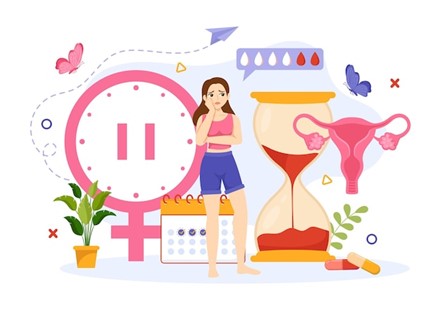Understanding Migraine Headaches: Causes, Diagnosis, Treatment, and Tips
Overview of Migraine Headaches
Migraine headaches are often misunderstood and confused with regular headaches, but their impact and severity are incomparable. In this blog, we will discuss about migraines, explore migraine causes, triggers, diagnosis, treatment options, and tips from our top migraine specialist in Mumbai at Jaslok Hospital to manage and prevent migraine attacks.
What is a Migraine Headache?
The duration, symptoms, and intensity of migraine headaches are different from those of other types of headaches. One-sided throbbing pain that lasts for several hours or even days is how they are identified. Nausea, vomiting, sensitivity to light and sound, and general discomfort are frequent accompanying symptoms. Effective therapy for migraines requires an understanding of their unique characteristics.
There are two types of migraine headaches, migraine without aura and migraine with aura.
Migraine without aura is more prevalent, causing around 80% of occurrences. It appears with the previously mentioned symptoms.
Migraine with aura, on the other hand, is characterized by extra neurological symptoms that appear before or during the headache phase. Visual problems, such as seeing flashing lights or blind areas, tingling sensations, and difficulty speaking are examples of aura symptoms.
Causes and Triggers of Migraine Headaches
According to our doctors for migraine treatment in Mumbai, Various circumstances can trigger migraine attacks, and identifying these triggers is essential for the best treatment. Some common triggers include:
Hormonal changes

Fluctuations in hormones during menopause, menstruation, or pregnancy can lead to migraines.
Stress

Prolonged periods of stress can increase the likelihood of migraine attacks.
Medications

Certain medications, such as oral contraceptives, have been known to trigger migraines in some individuals.
Food and beverages

Consuming certain foods and beverages, such as coffee, wine, alcoholic beverages, foods with additives, and aged cheeses, can trigger migraines.
Sleep patterns

Disruptions in sleep patterns, such as getting too much or too little sleep, can contribute to migraines.
Sensory stimuli

Strong smells, loud sounds, and bright lights can act as triggers for some individuals.
Physical exertion

Intense physical exercise or activities can bring on migraines.
Weather changes

Some people are sensitive to weather changes, particularly shifts in barometric pressure, which can trigger migraines.
It’s important to note that triggers can vary from person to person, the migraine specialists at our headache clinic in Mumbai suggest keeping a migraine diary to track potential triggers can help identify individual patterns.
Diagnosis of Migraine
At RNR Medicine Department at Jaslok Hospital, our head pain specialist doctor in Mumbai use a variety of techniques to correctly diagnose migraines and create a successful treatment strategy. These may consist of:
Medical history and symptom evaluation
Doctors obtain insight into the patient’s medical history, including any migraine heredity.
Evaluating the occurrence, duration, and severity of headaches as well as any accompanying symptoms such nausea, sensitivity to light and sound, and visual abnormalities.
Physical examination and neurological tests
A comprehensive physical examination is required to eliminate other potential causes of headaches. The doctors at our headache clinic in Mumbai may use neurological examinations to evaluate brain function and find any abnormalities.
Imaging tests
CT scans or MRIs are used to get detailed images of the brain, which helps in identifying underlying diseases that may contribute to migraine.
Migraine diary
Our neurologist for migraine in Mumbai encourages patients to keep a detailed record of their migraine episodes, including triggers, symptoms, and response to treatment.
This diary can provide valuable insights into patterns and potential triggers, aiding in the development of a personalized treatment plan.
How Can I Cure My Migraine Headaches? 3 Most Common/Prevalent Migraine Treatments
How is a migraine treated? Migraine treatments encompass both acute and migraine prevention approaches. Acute treatments aim to provide temporary relief during a migraine attack, while preventive migraine treatments focus on reducing the frequency and intensity of future migraines. Together, these treatment strategies work towards offering comfort during episodes and minimizing the overall impact of migraines on individuals.
During a migraine attack, the focus is on relieving migraine symptoms and minimizing discomfort. How can I prevent migraines? Acute and preventive migraine treatments options include:
Medications for Migraine
- Triptans: These medications work by constricting blood vessels and reducing inflammation in the brain, providing relief from migraine symptoms.
- Pain relievers (analgesics): Over-the-counter or prescription medications can be used to alleviate headache pain.
- Anti-nausea medications: These drugs help manage nausea and vomiting, which often accompany migraines.
- Beta-blockers: These medications help regulate blood pressure and can effectively reduce the frequency of migraines.
- Antidepressants: Certain antidepressant medications can help manage serotonin levels in the brain, reducing the occurrence of migraines.
- Anti-seizure drugs: Some medications typically used to treat seizures have shown efficacy in stabilizing electrical activity in the brain and prevent a migraine attack.
Non-medication approaches for Migraine
- Applying cold or hot compresses to the affected area can help alleviate pain and discomfort.
- Resting in a quiet, dark room can provide relief from sensory stimuli that may worsen migraine symptoms.
- Practicing relaxation techniques, such as deep breathing or meditation, can help reduce stress and promote relaxation.
Transcranial Magnetic Stimulation for Migraine in Mumbai
TMS is a noninvasive therapy that involves the use of magnetic fields to stimulate specific areas of the brain.
It has been found to be effective in reducing both the frequency and intensity of migraines, particularly in cases of chronic migraines.
It requires consultation with our doctors for tms treatment for migraine in Mumbai at Jaslok Hospital and the treatment can be performed as suggested by the doctor.
Remember, if you are experiencing migraines, it is important to seek professional medical advice for an accurate diagnosis and appropriate treatment at our hospital for tms for migraine in Mumbai. With the right approach, migraines can be effectively managed.
7 Important Tips You Should Follow From Today to Prevent & Avoid Your Migraine Headaches
In addition to medical migraine treatments, modifying certain aspects of one’s lifestyle can significantly reduce the frequency and severity of migraine attacks. Here are some lifestyle adaptations recommended by our Migraine Specialist in Mumbai that can help in migraine prevention:
Staying hydrated
Dehydration can trigger migraines, so it’s important to drink enough water throughout the day.
Maintaining regular and balanced meals
Migraines can be caused by irregular eating habits, such as skipping meals or eating infrequently. Maintaining a well-balanced diet and sticking to regular meal times will help to stabilize blood sugar levels and lower the risk of migraines.
Avoiding trigger foods
- Determine which foods—aged cheeses, processed meats, chocolate, alcohol (particularly red wine), and artificial sweeteners or MSG—are the common triggers and get rid of them.
- To find personal migraine causes, keep a thorough food diary where you record everything you consume and any instances of migraines.
- Make fresh, complete food choices and drink lots of water to stay hydrated.
Establishing consistent sleep patterns
- Even on weekends, try to maintain a regular bedtime and wake-up time to help your body’s internal clock.
- Establish a relaxing nighttime ritual, like reading, doing some light stretching, or having a warm bath, to let your body know when it’s time to unwind.
- A comfortable, dark, and peaceful sleep environment is essential.
- You should also avoid consuming coffee or large meals right before bed.
- Blue light exposure can affect the quality of sleep, so cutting back on screen time an hour before bed can also assist.
Managing stress levels
- Include regular exercise in your daily routine, such as yoga or walking, to help manage your stress levels.
- To soothe your thoughts, engage in relaxation exercises like progressive muscle relaxation, deep breathing, or meditation.
- Make sure you’re getting enough sleep by keeping a regular sleep pattern and setting up a comfortable sleeping space.
- For migraine prevention or feeling overwhelmed, break up large activities into smaller, more manageable ones.
- Please don’t be afraid to ask friends, family, or experts for help when you need it.
Our doctors at the hospital for TMS for migraine in Mumbai suggest engaging in stress-reducing activities such as regular exercise, meditation, deep breathing exercises, and pursuing hobbies that bring joy and relaxation to properly control stress levels.
Regular exercise
- Try to get regular, moderate exercise, like cycling, swimming, or brisk walking. These activities can help you feel better overall and lower stress without going overboard.
- Create a consistent schedule because migraines can occasionally be brought on by sporadic exercise.
- Incorporate methods of relaxation such as tai chi or yoga to assist in stress management.
Creating a calm environment
- Make sure there is adequate ventilation and no strong odors in the area, as these can frequently act as triggers.
- If necessary, use blackout curtains and steer clear of harsh fluorescent lighting in favor of soothing, natural lighting.
- Reduce loud noises to maintain a calm environment; earplugs or white noise devices could be useful.
Implementing these lifestyle changes may require time and experimentation to determine their effectiveness on an individual basis. It’s advisable to consult with migraine doctors in Mumbai for personalized guidance.
People seeking relief from this horrible condition must first understand the unique nature of migraines, including their causes, triggers, diagnosis, and treatment options. While there is no one-size-fits-all answer, experimenting with lifestyle changes and working closely with migraine therapy doctors in Mumbai can help effectively manage and prevent migraines. You can enhance your quality of life and lessen the burden of migraines on your every day activities by remaining informed, tracking probable triggers, and implementing essential lifestyle modifications.
Reducing exposure to strong smells, bright lights, and loud noises can help prevent migraine headaches, especially during an attack.


